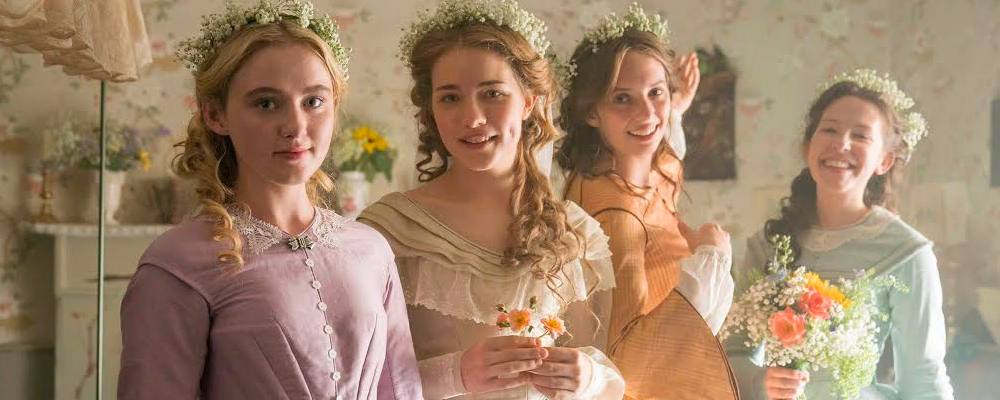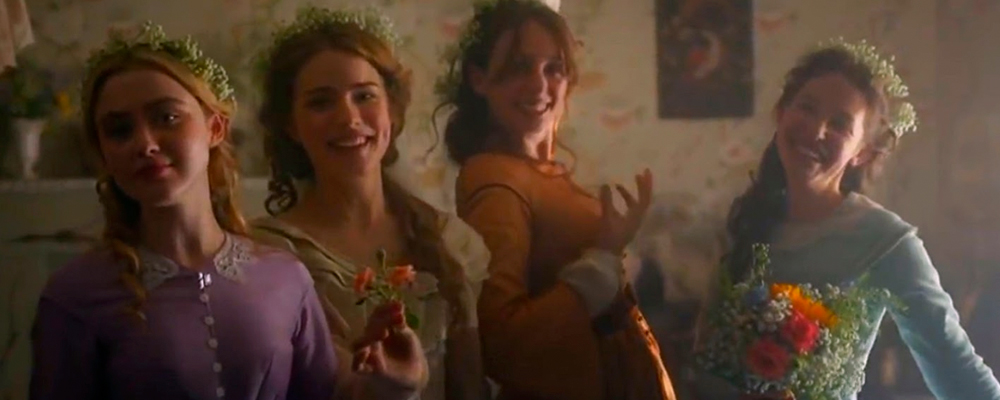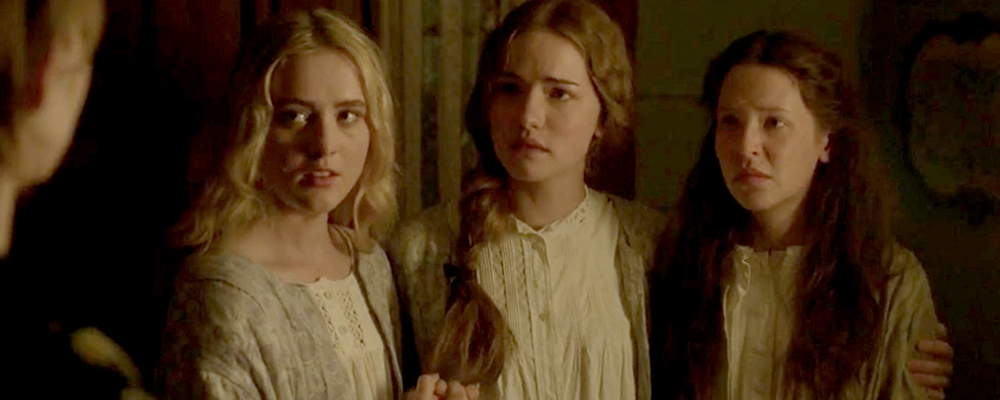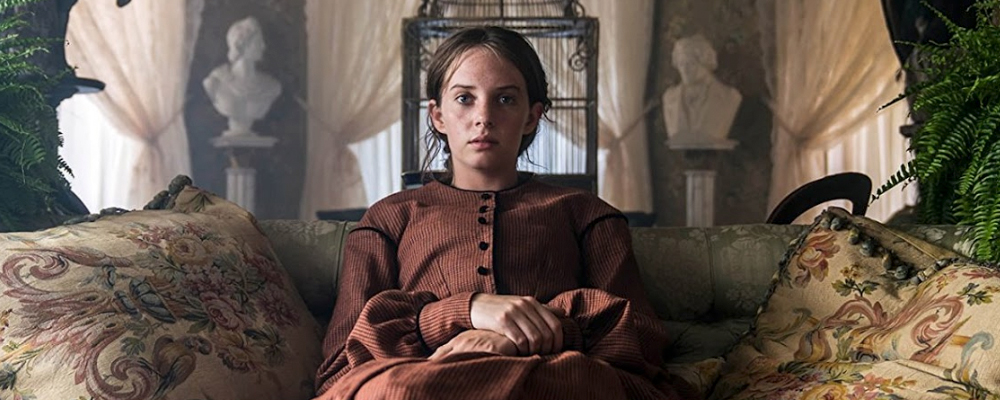Maya Hawke and Kathryn Newton Discuss the Modern Relevancy of PBS’s ‘Little Women’
Aaron Berke
“Little Women” may have been written in 1868, but its themes are perhaps more prevalent than ever. Numerous film adaptations have come and gone since the novel’s publication, but May 13th sees the first ever three-hour television version premiering its first episode on PBS. The new adaptation explores the relationship between the March sisters — Meg, Jo, Beth and Amy — in greater detail than ever before. Jo (Maya Hawke) and Amy (Kathryn Newton) in particular stand out for their attempts at finding full-fledged autonomy. Jo wants to be a writer, and Amy wants the freedom to fulfill her youthful passions without restraint. Jo and Amy represent a feminine search for authenticity that resonates powerfully today.
Maya Hawke and Kathryn Newton, along with showrunner Heidi Thomas, spoke with Entertainment Voice to discuss the journeys of Jo and Amy, and the modern relevancy of “Little Women” as a whole. The storyline, which takes place on Christmas in 1861, deals with the March sisters and their mother alone at home for the first time, while their father serves in the Union army of the Civil War. The absence of an authoritative male figure allows the women to take center stage as singularly developed characters. According to Hawke, the legitimacy of the four young women was precisely what stood out to her about Thomas’ adaptation.
“There’s been so many different adaptations and takes on this material in the last couple centuries that it’s been available,” said Hawke “And I think what you’re looking for [in a good adaptation] is you’re looking for the characters to surface. Especially as an actor, you’re looking for the humanity and complexity of each of the characters in the narrative to come alive as full, breathing human beings. And immediately when you read Heidi Thomas’ adaptation, she found moments from the novel that showed each character’s dimension, and that’s what really appealed to me about it.”
Hawke’s Jo is an immediate standout in the PBS series. As her sisters make fun of Jo’s lack of femininity, Jo simply filters it out, and retreats to her refuge, which is a storage area where she works tirelessly on her novel. The series depicts Jo as insecure yet optimistic, unsure of whether she’s good enough to ever get her writing published, yet so authentically in love with the written word that she keeps plowing ahead anyway.
Jo feels most comfortable when she’s in her refuge, letting her heart pour onto her pages. Whenever she’s forced into societal obligations, she feels markedly more uncomfortable. Hawke discussed the process of filming the party scene, where Jo attends a neighborhood party with Meg, but personally feels uncomfortable. According to Hawke, she had some input in honing Jo’s actions during the scene.
“There’s a scene in this first episode where I was supposed to be looking in the mirror, [but] the [internal] place where Jo would go in the party, to be a recluse, to hide from the party, wouldn’t be to stare at her own reflection,” Hawke said thoughtfully. “Jo’s not vain, so [I asked myself] what is she doing in the mirror other than trying to see whether or not she’s beautiful? Because that’s not what she would do. And [I realized that] what she would be doing, is she would be futzing with her ribbon, tying and untying it and sort of being bored, looking around, talking to her sister. So that was one moment where [I said] this isn’t what she would be doing, [and I figured out how] to be her in that moment.”
In the first episode, Jo faces her greatest personal challenge when Amy, the youngest sibling, burns every single page that Jo had written. For Jo, it’s a devastating moment where she’s faced with losing everything she has. For Amy, it’s a moment of petty revenge where she expresses her fury over not being invited out with Jo and Meg. According to Kathryn Newton, she was conscious of the terrible nature of Amy’s actions, but still sought to bring out the character’s youthful zest and make her sympathetic.
“I really wanted the challenge of trying to make this character likable. I mean she does this horrible thing, but I wanted people to see her as the dreamer and the lover that she really is,” Said Newton. She further elaborated on how being a dreamer is something Jo and Amy have in common. “Jo is always questioning everything and asking, ‘why not?’ Amy does too, and that’s kind of why they butt heads so much. Even though they want different things, they both go after them with the same fire.”
Like Hawke, Newton also had some personal ideas in shaping her character’s decision making. The fateful book burning scene was a bit more dramatic and drawn out than Newton would have liked. But ultimately, Newton recognized that the visions of Thomas and director Vanessa Caswill were playing out with a purpose.
“The burning of the book was really important to me, because she’s so young when she does it and I didn’t want it to seem calculated,” Newton admitted “And the way that we shot it was intense, it seemed very calculated and very thought out, and I didn’t know if that was right. I was like ‘I don’t know, I think she’s 12 and just throws it in the fire and walks away and laughs.’ And the way we shot it was intense. I disagreed with it, but that’s where you trust your director and [we were] creating something together. Watching the scene [it becomes clear that you] needed it so you can see Amy grow.”
Some of the most intense and heartfelt moments in the first episode occur between Jo and Amy. First their falling out over the book burning, their extended feud, and their eventual reconciliation when Jo saves Amy from nearly freezing to death in an icy lake. According to writer Heidi Thomas, such fleshed out moments of character growth were made possible by the virtues of the television medium.
“What I really loved about this [adaptation] is, because it’s for television, it’s three hours long, and you don’t get to make a big screen adaptation that’s three hours long,” Thomas enthused. “And I was really excited to be given three hours to tell that story, because I feel as though we were truer to the book than some previous adaptations. And because I knew we had that opportunity to tell the story in a slightly more leisurely way we didn’t have to cut it to ribbons and we could expand our focus on more important moments. To my mind it was about doing the novel as much justice as possible within a dramatic format rather than us trying to compress the delicacy and the richness of the novel into too short a time frame.”
Thomas’ desire to flesh out important moments really shines through, particularly in the relationship between Amy and Jo. They feud, they fight, they hate each other, but eventually they reconcile, because that’s what sisters do. According to Hawke, there was a natural sisterly bond that developed between the young actresses because of the time they spent together.
“It was the greatest privilege of my life to work on that sisterly relationship, because I met some of the most wonderful, talented young women that I’ve ever met,” Hawke remembered fondly. “We all lived together in the same hotel for three months in Dún Laoghaire, Ireland. We had dinner every night for three months, and I’ve never had dinner with any one person for three months in my life. So it was a really intense bonding experience that I hope shows through when you watch it.”
Not only does the bond between sisters show through in “Little Women,” it also feels as authentic as any modern-day sisterly relationship. The story of Amy and Jo and their siblings is perhaps as prevalent today as it was in 1868. The dreams of the March sisters shine with relevance, thanks to society’s modern reckoning with the power of women. According to Thomas, this is exactly why “Little Women” has remained so relevant over the last two centuries.
“I think [‘Little Women’] is about women finding autonomy, women finding their authentic voice,” Thomas reflected. “I think that some of the dialogues we’ve been having in society recently have been about women who have not been able to access their authentic voice or to be who they really want to be because they’re afraid of the constraints imposed on them by society. I think Jo and Meg and Amy were also constrained by the society they were in at that time. Maybe one of the most powerful things about ‘Little Women’ is it shows us what has not changed. So whether I’ve come up with a new take on it, I don’t know, but I feel as though this is a story that has never not been relevant.”
“Little Women” premieres May 13 at 8 p.m. ET on PBS.




